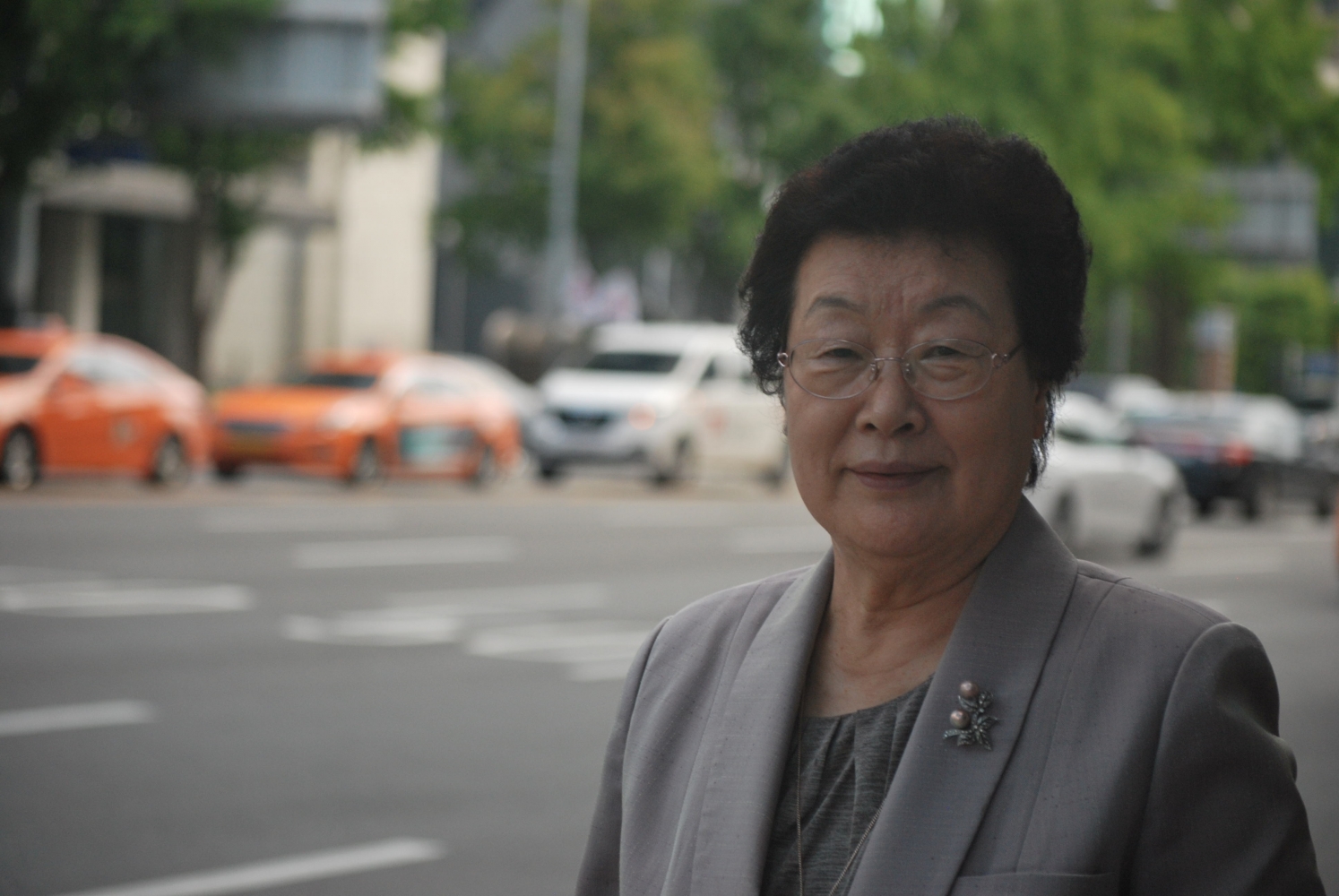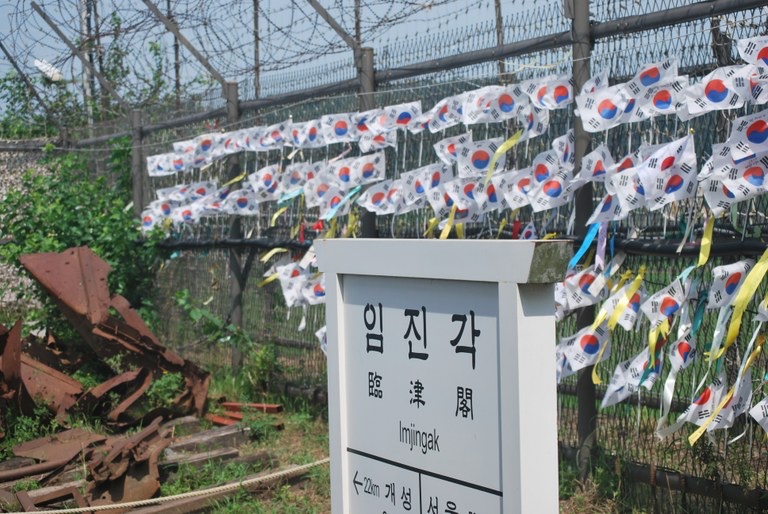
In an article first published on the World Council of Churches’ website, CLAUS GRUE speaks with Rev Dr Sang Chang, the WCC Asia president, about how her life’s experiences have given her even greater determination to fight for gender equality and social justice…
At the most glorious moment in her career, Rev Dr Sang Chang discovered that society is not always friendly and that politics can be devilish. But thanks to God, she got over it. Without bitterness and even more determined in her fight for gender equality and social justice.
It was during the hearing process as newly appointed South Korean Prime Minister in 2002, that she stumbled. President Kim Dae-jung’s bold move to appoint a woman as Prime Minister was not popular among the country’s predominantly male political elite. A nasty power struggle ended Chang’s tenure as acting prime minister after merely one month in office.
“I failed, but society changed after that. Since then, the doors have opened for women to become cabinet ministers”, she explains.

Rev Dr Sang Chang is WCC Asia president. PICTURE: Claus Grue/WCC
The incident became an awakening to her, and a reminder that the world is not fair to women. That hasn’t lessened her influence in Korean politics. Last year, she accompanied the current president, Moon Jae-in, as a senior advisor in a delegation to North Korea to meet with chairman Kim Jong-un.
“I had met his father, Kim Jong-il, back in the year 2000 as part of the then-President Kim Dae-jung’s first delegation to North Korea. And in 2015, I visited North Korea again, that time as one of the delegates of the World Council of Churches”, Chang says.
“Political leaders will do their job, but a reunified society means the meeting and the living together of peoples of the North and South. Not only will it take time to overcome ideological differences, it will take time to bridge cultural differences, including our languages. The two Koreas speak the same language, but some words have changed their meanings over the years. Still, we are one people, and the direction of unity has to be there.”
– Rev Dr Sang Chang
These historic visits are the only three times she has been “home” since she fled to Seoul together with her mother as a seven-year old after World War II. They fled because of their Christian faith.
What has happened since to their relatives in her home town Yong Chun by the Chinese border in north-western Korea, Chang doesn’t know. No contact has been possible and no information has ever come out of North Korea.
Next year, it is the 70th anniversary of the outbreak of the Korean war. Things have changed dramatically during that time and Chang believes education is needed to enhance mutual understanding between the two peoples of Korea, peoples who have lived their lives under completely different political systems. She therefore founded Unified Future for Korea in 2017, an organisation devoted to facilitating reunification through education.
“Political leaders will do their job, but a reunified society means the meeting and the living together of peoples of the North and South. Not only will it take time to overcome ideological differences, it will take time to bridge cultural differences, including our languages. The two Koreas speak the same language, but some words have changed their meanings over the years. Still, we are one people, and the direction of unity has to be there”, she explains.
Ever since her first visit in the North in 2000 together with president Kim Dae-jung, who was awarded the Noble Peace Prize the same year for his efforts to ease tensions between the two Koreas, she has firmly believed that the road to reunification is open. And more open now, than then, albeit still difficult.
“We know that the path to peace is not a straight road, but a narrow one that can be reshaped only by building up mutual trust step by step, based on healing and reconciliation”, she says.
Her belief that a unified Korea will happen one day is more influenced by faith than reality. Chang has been guided by her faith all her life. She was born as a Christian. Her grandmother started the first church in her hometown.
“Life itself and Christian life cannot be separated”, she points out.

Symbols of prayers along the Demilitarized Zone. PICTURE: Claus Grue/WCC
Early on, during her college years at Ewha Woman’s University in Seoul, Chang became a very active leader of Christian student movement, and a devoted ecumenist. Then, while studying at Princeton Theological Seminary in the US, where she became a doctor of philosophy specialising in the New Testament, she developed a strong passion for feminism. When she returned to Korea, she led the Christian feminist movement.
Most of her professional life has been devoted to teaching, primarily at Ewha Woman’s University, where she eventually became president in 1996. At the same time, she also served as an executive member of World YWCA, and as an executive member of WARC, which is now World Communion of Reformed Churches. In 1988, she was ordained by the Presbyterian Church of the Republic of Korea, and became a well-known preacher and speaker.
Leaving active politics in 2010 allowed her to spend more time on the ecumenical movement. In 2013 she was elected as WCC president of Asia at the Busan Assembly.
Chang lived through the Korean war, so she knows what poverty means, what war means, what it means to be a refugee and what struggle means. Her faith in God has been central to sustain hope and overcome difficulties in life. A life-long engagement in the ecumenical movement, along with political responsibilities, has widened her perspectives and strengthened her beliefs.
Chang identifies a number of challenges to take on for the ecumenical movement, the most important being the environmental issue, which in her mind is about nothing less than the survival of human kind. She is also seriously concerned about young people losing faith in the Gospel and not paying much attention to ecumenism.
“Churches’ influence must grow and remain strong. We must vitalize what we are and visualize what we want to be. We have to be more prophetic”, she concludes.
The ecumenical youth movement, she believes, is a key player in pointing out the direction of 21st century Christianity. In a short speech at the WCC ECHOS Commission meeting in Seoul last week, she shared – as the WCC President for Asia – her hopes for young Christians “to make a substantial contribution to the future of the ecumenical movement through youth responses to current challenges into areas of religion and violence, discrimination and youth unemployment”.
She also expressed a particular hope that ECHOS, as a vital WCC youth programme, “will bring something new to the ecumenical movement and be a creative, real voice to provide a new vision for the future of it”.

Bustling South Korea capital Seoul counts more than 10 million. PICTURE: Claus Grue/WCC
Throughout a rich and fulfilling life, Chang has been an ambassador for women’s rights and carried a torch for the values and principles she believes in. She is deeply grateful for the opportunities she has been provided to pursue higher education at a prestigious university, to serve good causes and to belong to a worldwide fellowship of Christians.
Her message to today’s young generation is: “Never be discouraged, just move on, hold your principles high and never give up”.
And that is precisely what has guided this remarkable woman throughout her own life, an exciting, influential – and very ecumenical – life.
This article was first published on the World Council of Churches’ website.






